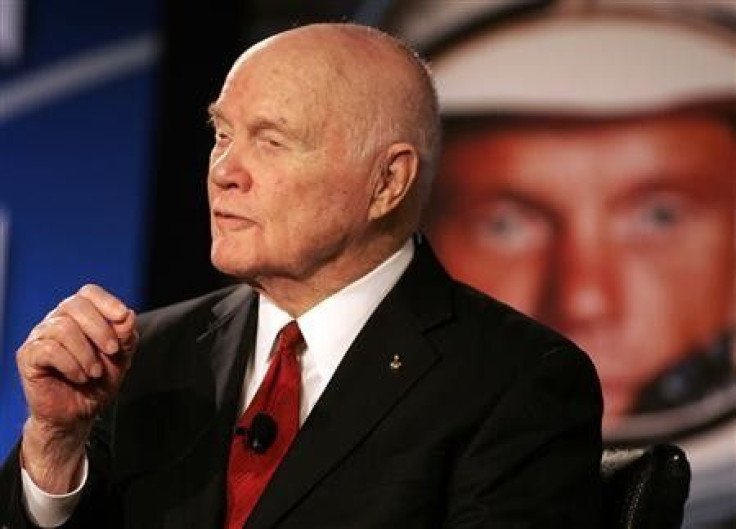Astronaut Glenn Calls Historic Flight 'Best Day' of His Life

(Reuters) - Astronaut John Glenn, marking the 50th anniversary on Monday of his historic flight as the first American to orbit the Earth, remembered it as the best day of his life.
Glenn, 90, told an audience in Columbus, Ohio that the flight was the result of "more than two years of training and working with a marvelous team."
"That is why the craft was called Friendship 7, because of the team," he said.
Glenn's groundbreaking flight on February 20, 1962 put the United States into a heated space race with the Soviet Union, which had launched cosmonaut Yuri Gagarin into orbit 10 months earlier.
"It was the best day of my life," said Glenn, who went on to serve as Democratic senator from Ohio from 1975 to 1999.
"It seems more like two weeks than 50 years," he said of the flight, noting that since then it has been "a rare day" when someone has not asked him a question about space or his flight.
The anniversary has been marked by a series of celebratory events, and Glenn has taken an opportunity to speak out against funding cuts to the nation's space program.
The United States last year retired its shuttles used to get astronauts to and from the jointly owned International Space Station, which flies about 240 miles above the planet.
"For the world's best space nation, it was very unseemly and I don't like it," he said. "We have lost the chance to do research."
Glenn returned to space in 1998, at age 77, on board the space shuttle Discovery as a research subject for experiments on aging sponsored by the National Institutes of Health.
© Copyright Thomson Reuters 2024. All rights reserved.











